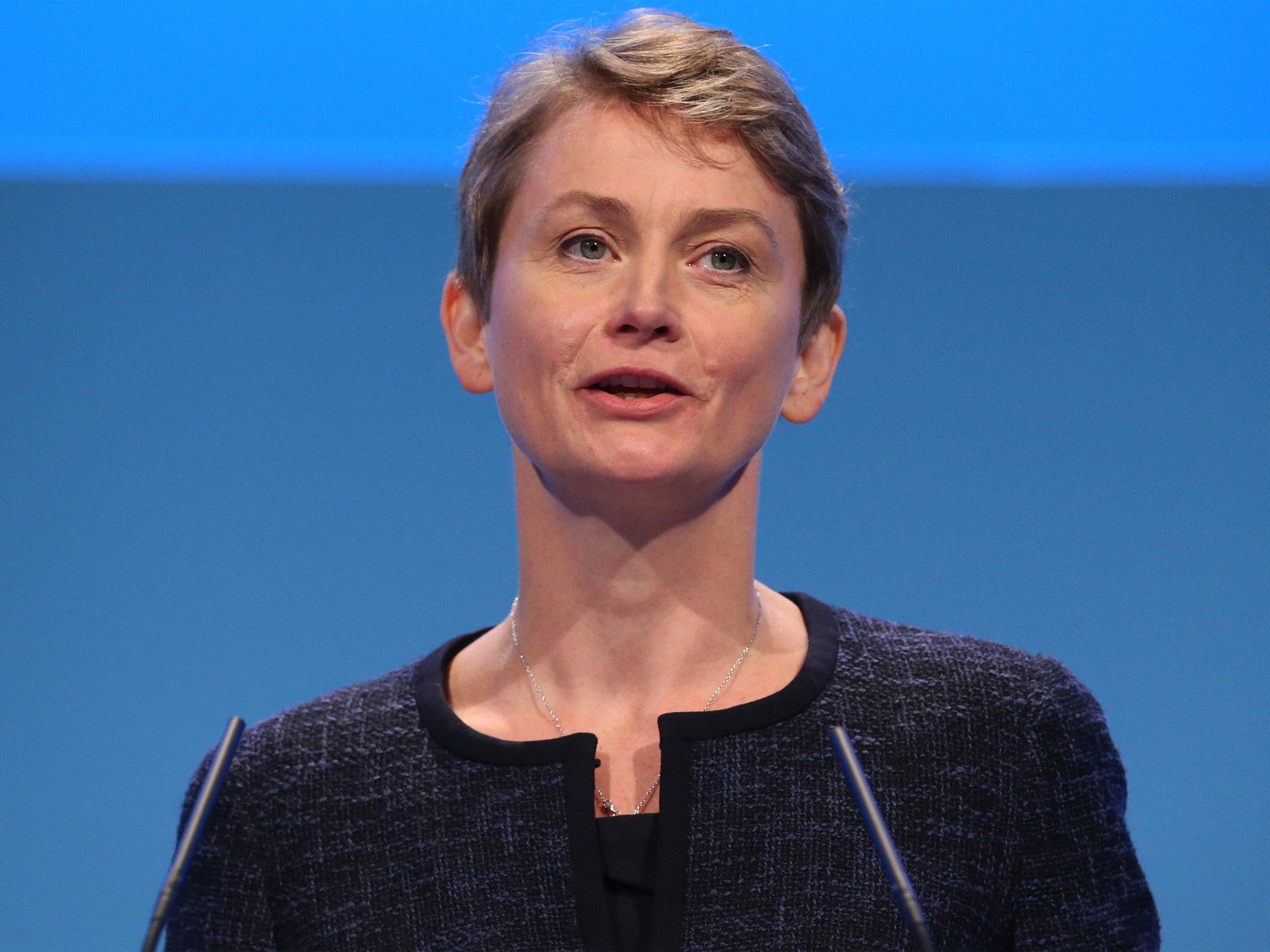The tricky choices for Yvette Cooper if Labour wins power
If the polls are right, she could be implementing her plans before long

As shadow Home Secretary, Yvette Cooper probably has the toughest job on the opposition front bench.
She is pitched against a formidable operator in Theresa May, whose combination of steel, hard graft and good luck has led to her being regarded as a major Coalition success.
In addition, the key areas in the home affairs brief – immigration, policing and counter-terrorism – are tricky for Labour, which is terrified of being caught on the wrong side of public opinion on such emotive subjects.
The outlines of how a Cooper-run Home Office could look are beginning to emerge, although much crucial detail remains to be filled in. The Labour leadership has agonised over what note to strike on immigration, insisting it will not mimic Ukip’s approach of blaming “foreigners” for our woes.
But its instinctive caution was underlined last year by its sluggishness in condemning the Home Office’s notorious “go home” vans. It has also been at pains to confess to mistakes in the handling of immigration in office.
If she becomes Home Secretary next May, Ms Cooper has promised to crack down on exploitation pay and jobs agencies that only advertise for foreign workers, to bring in stronger border controls, including exit checks, and to target illegal immigration.
But she faces several unanswered policy questions. She has repeatedly condemned Ms May for failing to meet David Cameron’s pledge to reduce net migration to tens of thousands. That single target would be swept away by Labour, but what would replace it?
Would she, as part of a promised “progressive” approach, make it easier for family members to join relatives in Britain?
One long-standing immigration specialist forecasts Ms Cooper would build on her predecessor’s work rather than change direction. He adds: “Tonally I don’t think she will be very different from Theresa May.” Ms Cooper this week announced that a drive against the hidden crime of domestic violence would be a key priority.
Labour’s first Queen’s Speech would include legislation to stop abusive partners evading prosecution. She has also pledged Labour would get officers out of patrol cars and on to the beat. That is a voter-friendly promise which raises further questions. Given the party’s commitment to rein in spending, would other areas of policing then be cut?
The shadow Home Secretary has vowed to reform the “flawed” Police and Crime Commissioner (PCC) system and overhaul the structure of policing.
She would scrap the Independent Police Complaints Commission and replace it with a watchdog with more teeth, but has not said how she would reform the system. Moreover, would she defy public opinion and force through mergers of smaller county forces in England and Wales?
One area to expect continuity from Ms Cooper is in the balance between civil liberties and combatting terrorism. Labour’s instincts are broadly in tune with the Tories, last month endorsing the principle of giving the security services emergency powers to monitor internet use.
She could even go further than Ms May and bring back the last Government’s control order regime for monitoring terror suspects.
Ms Cooper will fill in some of the blanks in her speech to the Labour conference on 23 September. If the polls are right, she could be implementing her plans eight months later.
READ NEXT:
Join our commenting forum
Join thought-provoking conversations, follow other Independent readers and see their replies
Comments
Bookmark popover
Removed from bookmarks